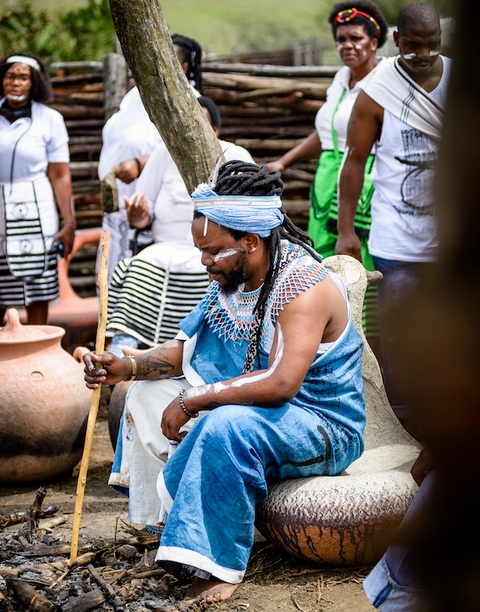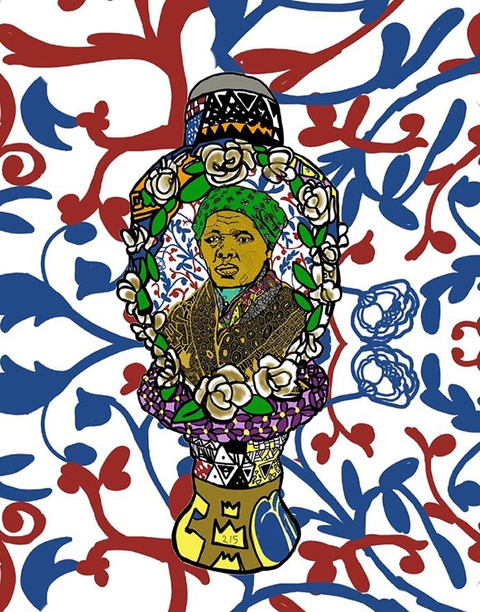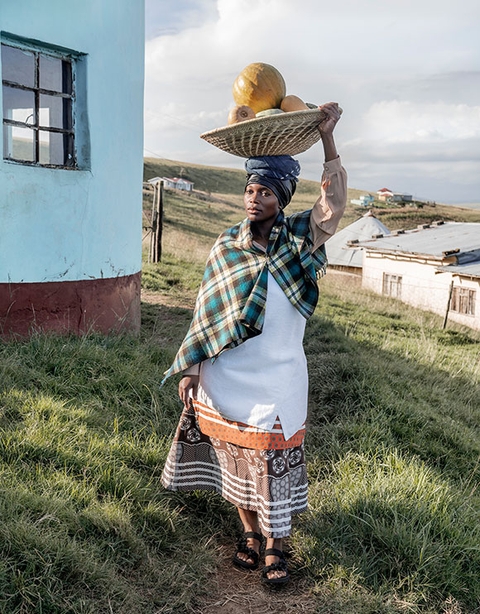My Enquiry (0)
No artwork has been selected.
Please choose an artwork to enquire.
Enquiry Submitted
Thank you for your enquiry and interest in our artists’ work. A member of the gallery team will respond shortly.
000%

Watch: Andile Dyalvane’s ‘iThongo’, presented in cooperation with BMW South Africa
25 Feb 2021 (3 min) read
"Showing this collection first in Ngobozana was essential for restorative healing – for the sake of my ancestors and every person in my village."
Presented in cooperation with BMW South Africa, this short documentary follows the making of iThongo, ceramic artist Andile Dyalvane‘s latest collection, co-presented by Southern Guild (Cape Town) and Friedman Benda (New York) galleries. The collection of ceramic chairs was first showcased in its entirety at Dyalvane’s rural village, Ngobozana, in the Eastern Cape province to honour his ancestors and the community that raised him.
Ngobozana – population approximately 750 – is an unlikely place to debut a new collection by a globally celebrated artist. There is no sign marking the turn-off from the main road skirting its periphery, but for Dyalvane, the village holds a rich store of cultural memory – the life-blood of his artistic practice as one of Africa’s most accomplished ceramicists.
Dyalvane grew up here, roaming the hills, herding livestock and digging in the rich clay soil lining its riverside ravines. It is a place that moulded him, where he first heard the whispers of his calling as an artist and a custodian of his Xhosa heritage. He has travelled the globe for residencies and exhibitions, but Ngobozana is where he feels most at home. The iThongo seats whose functional and spiritual home is the kraal – a fenced enclosure used to house cattle, and the gathering place for traditional meetings and communal ceremonies. In Xhosa culture, the kraal is the heart of the homestead, a sacred site with a direct link to the spirits of the family’s ancestors.
So, in a reversal of traditional art-world practice, his galleries – Southern Guild and Friedman Benda – premiered the entire collection of ceramic sculptures at the artist’s family homestead in Ngobozana, prior to opening the exhibition first in Cape Town and then in New York. For two days last November, guests sat upon the chairs inside the family kraal as the community gathered to celebrate one of their own, honour their forebears, feast, sing and dance.
At the centre of the festivities was Dyalvane: a man of irrepressible energy and generous spirit, whose message of healing and love for his culture unleashed a wave of pride in this remote village. “Showing this collection first in Ngobozana was essential for restorative healing – for the sake of my ancestors and every person in my village,” he said. “In all humbleness, I wanted to help those at home to see themselves – how worthy and great they all truly are. My work is about restoring dignity to people, so they can experience and acknowledge traditional cultures without the fear of being labelled ‘backwards’.”
He presented the people of Ngobozana with 100 terracotta beer pots – one for every household – to use for drinking traditional brewed beer. The gesture recalls an earlier gift just over 10 years ago, when he returned home bearing a unique clay vessel for his father, to replace the mass-produced plastic buckets that have become makeshift drinking vessels over the years. The gift was intended to show his father the craft that he had successfully turned into a livelihood, but it unfurled into a moment of profound awakening for Dyalvane as it set in motion a renewed embrace of Xhosa tradition among his immediate community.
The weekend’s festivities in November included various ceremonies honouring their lineage and remembering the dispossession experienced by previous generations. Wearing traditional Xhosa beadwork and wrapped in patterned blankets, Dyalvane and his family members paid their respects to their ancestors’ spirits in a solemn procession across the valley and up the hill to the site of the old village, which had been forcibly removed by the Apartheid government in 1965. There they installed uMalusi (Herdsman) from the iThongo collection on a cement plinth overlooking ancestral burial grounds, reciting blessings and performing cleansing rites with traditional herbs. uMalusi will be on permanent display here – an offering from the artist to all of the surrounding villages and a place to grieve what was lost, come together in song and heal the scars of displacement.
Dyalvane’s credo of remembering and reconciliation ripples outwards to other global contexts, too – far-flung, but equally as fraught. Part of the power of his work is that it insists simultaneously on commonality and difference. His vocabulary of symbols is distilled to an almost abstract essence that communicates across cultures. iThongoinvites audiences to sit down and listen, to bear witness to one another and the passage of time. It is an assertion of Black pride, and of our shared humanity.

